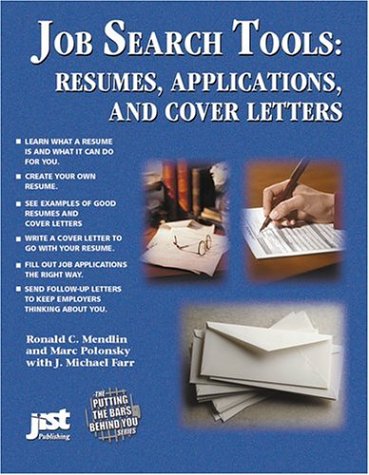We may earn a commission if you click on a product link and make a purchase at no additional cost to you. For more information, please see our disclosure policy.
Last updated: June 18, 2025
Key Takeaways
- Always Include a
Cover Letter : Even if optional, a tailoredcover letter can significantly boost your chances and help distinguish you from other applicants. - Stay Professional and Direct: Avoid gimmicks or humor; focus on clearly communicating your qualifications and genuine interest in the position.
- Tailor Each Application: Customize your letter to the role and company, addressing the
hiring manager by name whenever possible for added impact. - Highlight Transferable
Skills : If lacking direct experience, show how your existingstrengths align with the job requirements and add value to theteam . - Proofread Before Sending: Typos and grammatical errors can cost you the interview—review your letter carefully or have someone else check it first.
We often emphasize the importance of a polished CV, but a well-crafted cover letter is equally crucial. Whether you’re a seasoned professional or a newcomer applying for internships, this is your opportunity to market yourself to potential employers. Dedicate ample time to both your
Write a letter without fail
Always write a
Stay serious
Avoid the temptation to try to make a lasting impression by writing a quirky or amusing cover letter. It’s impossible to know how receptive the person dealing with applications is to that kind of thing, so it’s always best to play it safe. While it might work on rare occasions, for every interview you land by being ‘wacky’ with your cover letter, you’ll likely miss out on tens of others.
Shows readers how, why, and when to use these essential paper job search tools. Includes instruction on how to complete applications truthfully without screening yourself out of consideration
Starting Tips
- First Impressions Matter: Your
cover letter ‘s opening line sets the tone. Craft it to capture attention and demonstrate enthusiasm for the role. - Customize for the Job: Avoid generic templates. Tailor your
cover letter to address the specific job requirements and company culture. - Highlight Achievements: Instead of merely listing tasks, showcase your accomplishments and the value you’ve brought to past roles.
- Address the
Hiring Manager: Whenever possible, find out thehiring manager’s name and address them directly to create a personal connection. - Keep it Concise: Recruiters often skim through applications. Be brief, yet compelling, aiming for one page or less.
- Show Passion: Companies appreciate candidates who are genuinely excited about the role and the industry. Let your passion shine through.
- Include Relevant Keywords: Many companies use software to scan cover letters. Incorporate relevant job-related keywords to pass through these filters.
- Proofread Thoroughly: Typos or grammatical errors can undermine your credibility. Proofread multiple times or have someone else review it for you.
- End Strong: Conclude with a memorable closing statement that reiterates your interest and highlights how you’ll add value to the company.
- Follow-up: After submitting your application, consider sending a polite follow-up
email or making a call to demonstrate your continued interest and initiative.
This comprehensive guide offers a wealth of resources for job seekers, including hundreds of sample resumes and cover letters that have been successful in landing interviews and job offers.
Cover all the bases
Be sure to cover each of the person specification points outlined in the job advertisement, explaining why you meet each of the relevant criteria. If you don’t have previous experience in some of the areas, be sure to give examples of experience you do have that you will be able to adapt and bring across to the new role. Also, be concise; while you want to convey just how well-suited you are for the role, you also don’t want to bore potential employers. Keep it simple and save your best for the interview.
Investigate the employer
Do your research – it always helps to demonstrate that you know about the company you’re applying for a job with. While you’ll want to save most of that for the interview, it can’t hurt to show that you have an active interest in the company when writing your covering letter. Explain why you’re interested in the role, and more specifically, what attracts you to that particular company.
When it comes to finding a job, your cover letter can be just as important as your resume. It’s your chance to showcase your personality, highlight your skills and accomplishments, and explain why you’re the best candidate for the job.
Explore the final details
Always address your letter to the relevant person – many ads will specify exactly who to address in your
Keep it fresh
Write a new cover letter for each
Explore Career.io, the only Al and human-powered platform where you can find everything you need. For any step of your job search or career growth. All in one place.
Check it before sending
Double-check your letter for spelling and grammar mistakes. You want to give the best impression possible, so run a spell check and get somebody else to have a read-through to make sure your words scan properly.
Leverage AI-Friendly Formatting
Applicant-tracking systems now screen most cover letters before human eyes ever see them, so your content must satisfy both algorithms and recruiters. By structuring concise paragraphs, weaving role-specific keywords naturally, and aligning achievements with measurable outcomes, you enhance visibility in AI filters while demonstrating real value to
- Keyword Alignment: Mirror phrases from the job description to pass ATS filters without overstuffing, maintaining natural flow and context throughout your narrative.
- Adaptive Storytelling: Begin with a brief value statement that links your career successes to the employer’s current goals, creating instant relevance and engagement.
- Authentic AI Assistance: Use generative tools for drafts, then refine language to ensure accuracy, personality, and error-free content that reflects your actual expertise.
- Actionable Metrics: Quantify impact with percentages or dollar
savings , helping both AI and recruiters quickly gauge the tangible results you deliver.
Writing a resume can be daunting. There are many resources to help you write a resume that have generally good advice. But not too many people talk about the changes in the resume screening processes that are being used over the internet.
Strengthen Your Personal Brand
Your cover letter extends your professional brand beyond a résumé by conveying voice, values, and cultural fit. Consistency across LinkedIn profiles, portfolios, and application materials signals credibility to recruiters who increasingly cross-check candidates online. By coupling strategic self-promotion with genuine insight into the company’s needs, you demonstrate why you belong on their
- Consistent Messaging: Align tone, achievements, and keywords across social channels and documents so employers encounter a straightforward, unified professional narrative.
- Visible Thought
Leadership : Publish short articles or comments on industry trends, showcasing expertise and passion that reinforce claims made in your letter. - Networking Engagement: Join niche forums, webinars, and local associations to cultivate authentic relationships that often lead to referrals and interview invitations.
- Reputation Monitoring: Regularly audit your online footprint, updating outdated information and addressing inconsistencies that can undermine recruiter confidence.
Follow-Up Strategy for Modern Hiring
After submitting a tailored
This multichannel approach highlights initiative, showcases communication
Sending a powerful thank you letter after an interview can help put you ahead other candidates interviewing for the job so you get the coveted offer. Receive step-by-step instructions on how to write custom thank you letters for every interview.
Next Steps
- Create a Custom Template: Design a flexible
cover letter template that you can quickly personalize for different roles without having to start from scratch each time. - Research Target Companies: Spend 10–15 minutes learning about the company’s values and mission so you can tailor your letter to align with their culture and goals.
- Build a Proofreading Routine: Use tools like Grammarly or Hemingway, and enlist a trusted peer to review your
cover letter before submitting any application. - Practice Your Pitch: Write a short paragraph summarizing your value to employers and refine it for future letters, interviews, or networking conversations.
- Follow Up Professionally: Send a polite follow-up
email one week after applying to reaffirm your interest and inquire about next steps in thehiring process.
Final Words
Crafting a strong
Beat out the competition for the best jobs
Create an image of accomplishment, professionalism, and competence that today’s employers are begging for!
Mark Fiebert is a former finance executive who hired and managed dozens of professionals during his 30-plus-year career. He now shares expert job search, resume, and career advice on CareerAlley.com.









